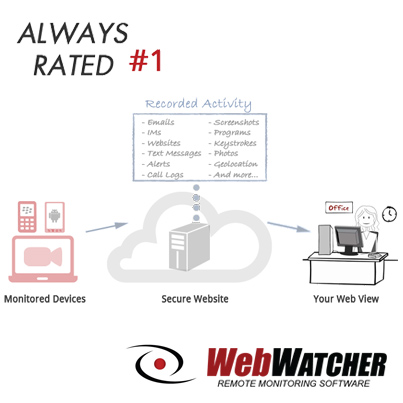Parents often worry about the kinds of people their children may meet online, and for good reason. For a long time, parents have warned their children to avoid talking to strangers, but internet culture has made it much more commonplace and acceptable to get to know a stranger intimately before ever meeting them in person.
It’s not unusual for people of all ages to make these kinds of connections and to be fair, sometimes they work out well. The internet makes it possible for people to find friends or even romantic partners even when they’re in remote or isolated locations or when disabilities or other factors may prevent them from easily making connections in person. They allow people with niche interests to find each other.
And when people are careful, discerning, and take proper precautions, they can usually avoid being fooled by scammers, frauds, and predators. But that doesn’t mean that those dangerous people aren’t out there online looking for targets, and they often target those who don’t yet have the life experience to know the best ways to protect themselves. In other words, children and teenagers.
While it’s important to understand that children who are targeted by predators aren’t responsible for their own abuse, it’s also important to know that at least some instances of abuse by online predators can be prevented by taking certain safety precautions. Take a look at some of the things that you need to know about protecting your children from online predators.
Put Boundaries on Your Child’s Internet Use
You’re the parent, and it’s your job to make the rules. And that applies to the digital world as much as it applies to the analog world. Boundaries help keep your child safe. You don’t let a small child leave your house or your backyard without a parent.
Older children may have more freedom to explore the neighborhood but aren’t allowed to go across town on their own. Even teenagers old enough to drive themselves are given limits. They may have the freedom to go where they like, within reason, but they have to be home at a certain time or have to check in with you before leaving the house or when their plans change, so you know where they’ll be.
The internet is similar. Different children at different stages of life will need different boundaries, but they all need some boundaries to keep them safe. You might have a rule that they can only go online in common areas of the home, but not when they’re alone in their bedrooms. You may limit their internet usage to certain times of the day. You may restrict them from visiting certain websites that you deem to be unsafe.
Your rules shouldn’t be entirely arbitrary, but they should be aimed at guiding your children toward better choices. You can help prevent them from making bad choices and can oversee their choices because even savvy children can make mistakes.
Check Out New Games, Apps, and Websites Yourself
If you know what your child is doing online, you can explore for yourself and decide whether or not you believe that it’s a safe place for your child to be online. Don’t just learn the titles of the games your child plays or the names of the apps they use, spend time on them yourself.
This way, you can learn about how the app, game, or website works, including safety features. Is it easy to block users who behave inappropriately? Are the admins or creators responsive to reports of potential safety issues? It can also help to sit down with your child and spend time on the app or game together. Find out how they’re using it and whether or not you’re comfortable with that.
Keep Lines of Communication Open
If your child is old enough to use the internet, they’re old enough for a conversation about internet safety and some of the potential dangers they might run into. Talk to your child. Warn them about potential dangers and what they might look like.
Red flags for online predators include asking the child to hide the relationship from parents, contacting the child on multiple different platforms, promising gifts, money, or favors, asking the child to reveal personal information, secrets about themselves, or other intimate information. Many predators eventually insist on face-to-face meetings.
Your child needs to know that people who get too personal too fast, require secrecy about their friendship, promise over-the-top favors or make unreasonable demands are not their friends. Make sure that your child knows how to block and report on any platform they use, and also that they should bring suspicious interactions to your attention or to the attention of another trusted adult in their life.
Be Aware of the Warning Signs

Sometimes, even with strong safety precautions in place, online predators will still manage to make inappropriate contact with a child. The sooner this is discovered, the sooner you can put a stop to it. So while prevention is certainly preferable, it’s also important to know the signs of online abuse in children.
A child who is being abused by a predator may spend way too much time online, even finding ways to sneak online when they aren’t supposed to. They may react with anger when asked to put down the device or when caught sneaking online. They may seem nervous or jumpy when they receive messaging notifications. You may also hear them talking with voices that you don’t recognize over voice or video chat applications.
It’s not uncommon for predators to use blackmail and extortion tactics to control children that they’ve targeted. If they can get a child to send one risqué photo or video, for example, they may threaten to send that photo or video to friends and family if the child doesn’t agree to send more pictures or videos, send more explicit content, or agree to an in-person meeting.
Like many adults in these kinds of situations, children will often go to great lengths to hide that they’re being blackmailed or extorted, so secretive behavior may be a sign that something is very wrong.
One way to ensure your child’s safety online is to monitor their activity with parental computer monitoring software. This gives you more information about what your child is doing and who they’re meeting online and more control over their online activity. To find out more about how monitoring software can help keep your child safe, get our risk-free trial.





